Tabletop devices for lab automation, instrumentation, biotech, and semiconductor manufacturing require precise, repeatable, and highly accurate motion control. Applications such as DNA testing or flip-chip bonding require spatial positioning on the order of microns. Motion needs to be carefully controlled to produce reliable, repeatable results even when subjected to heavy duty cycles that commercial labs can impose. This is why National Aperture’s engineering team set out to build a line of miniature devices. They wanted to design linear stages capable of achieving micron-scale accuracy with kilogram-level loads and rotary stages with sub-100arc/s accuracy.
To meet size and performance requirements, the motors powering the stages must be less than 13 mm in diameter and provide consistent performance. The challenge was finding sufficiently small motion components that could produce not only the consistency but the torque needed, while ensuring the kind of reliability scientific applications require. MICROMO provided the answer.
The motor packages consist of precious-metal-commutated servo motors operating at high enough speed that they can be integrated with planetary gearheads to increase torque and still achieve the desired motion characteristics. The subassembly also includes an optical encoder to ensure accuracy. Currently, the linear stages can position loads of 3 kg with ±0.5 μm repeatability and a linear accuracy of ±1.0 μm per 25 mm of travel. The rotary stages can carry 2-kg axial loads with 80 arc/s accuracy and 15 arc/s repeatability.
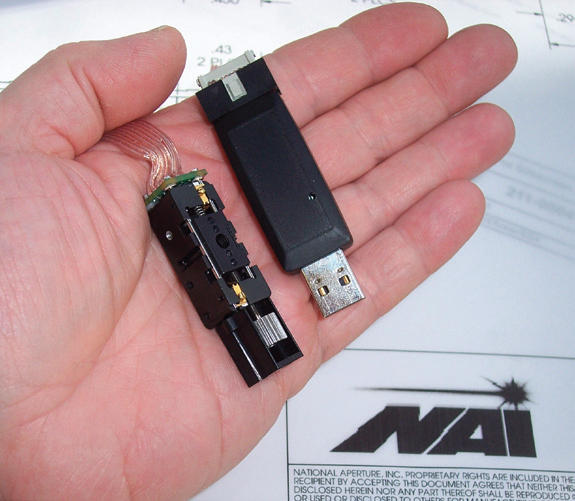
Linear motorized stages can move kilogram-scale loads repeatedly and reliably. Photo credit: National Aperture
At 13,000 rpm, the motors offer sufficient speed to allow engineers to choose the best gearhead for the job. Sometimes achieving torque and speed targets is straight-forward, others require a balancing act. It’s a matter of defining a priority between the two.
One barrier to both positioning accuracy and speed is backlash. For ultra-high performance applications, National Aperture adds an anti-backlash nut to damp stage motion at the end of run. However, there can be trade-offs. The anti-backlash nut improves accuracy and repeatability but it also adds friction, which means the reduction ratio must be increased to provide more torque. The standard speed of the stages is 6 to 12 mm/s; with the switch to a 64:1 gear-motor, for example, the speed drops to 1.65 mm/s.
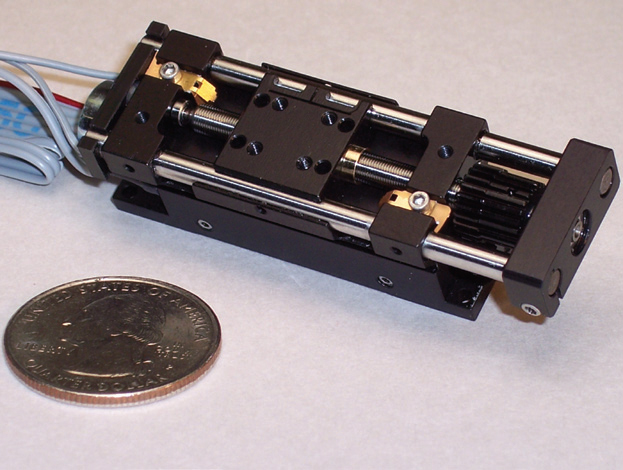
Folded microstages such as this one leverage compact encoders and servo motors to yield accurate, repeatable travel in a small package. Photo credit: National Aperture
The anti-backlash nut approach is designed in from the beginning of production, not adjusted on a per part basis. For the damping mechanism to be effective, the motors need to be consistent device-to-device, especially in velocity and torque. The anti-backlash nut comes after the motor and the gearhead, so if the motors are not consistent, then the effect of the anti-backlash nut would vary.
When a modified version of the standard platforms will not suit application specifications, National Aperture can customize a product. One example is an ultra-compact stage offering 5 mm of travel. MICROMO released its 6-mm PA2-50 encoder. In combination with the company’s 6-mm gear-motor, it provided the required performance.
MICROMO customized the gear-motor assembly, combining motor and lead-screw to reduce footprint. The result is the MM-1M motorized MicroMini stage, which offers ±3 µm accuracy and ±2 µm repeatability over 5 mm of travel. The National Aperture’s MicroMini stages can be found in laboratories worldwide and in instruments such as spectrometers, chemistry analyzers, microscopes, and optical systems.
National Aperture
www.nationalaperture.com
MICROMO
www.micromo.com
::Design World::
Filed Under: Factory automation, Stages • gantries, Encoders • optical, LINEAR MOTION, Motion control • motor controls

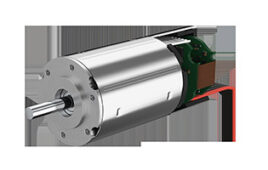
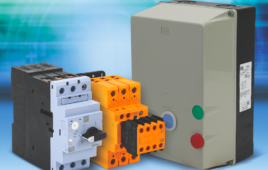
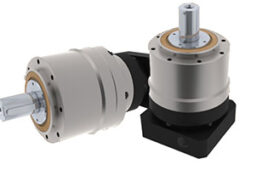
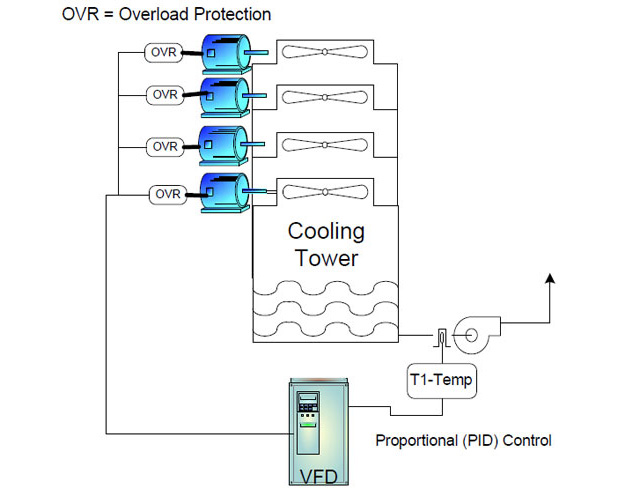
Tell Us What You Think!